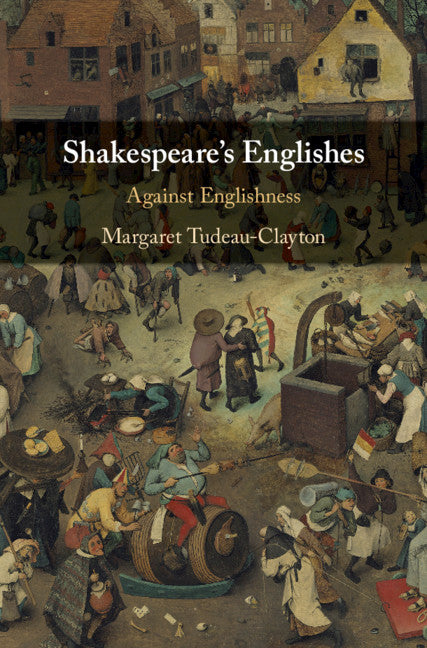Freshly Printed - allow 6 days lead
Couldn't load pickup availability
Shakespeare's Englishes
Against Englishness
Claims that Shakespeare resists an emergent, exclusionary post-reformation ideology of 'true' Englishness in his early plays.
Margaret Tudeau-Clayton (Author)
9781108725460, Cambridge University Press
Paperback / softback, published 30 September 2021
255 pages, 3 b/w illus. 1 table
22.8 x 15.1 x 1.4 cm, 0.384 kg
'... this book offers is a timely and generous one, underpinned by careful scholarship and nuanced critical analysis.' Tom Rutter, Modern Language Review
Whose English is 'true' English? What is its relation to the national character? These were urgent questions in Shakespeare's England just as questions of language and identity are today. Through close readings of early comedies and history plays, this study demonstrates how Shakespeare resists the shaping of ideas of the English language and national character by Protestant Reformation ideology. Tudeau-Clayton argues this ideology promoted the notional temperate and honest citizen, plainly spoken and plainly dressed, as the normative centre of (the) 'true' English. Compelling studies of two symmetrical pairs of cultural memes: 'the King's English' versus 'the gallimaufry' and 'the true-born Englishman' versus the 'Fantastical Gull', demonstrate how 'the traitor' came to be defined as much by non-conformity to cultural 'habits' as by allegiance to the monarch. Tudeau-Clayton cogently argues Shakespeare subverted this narrow, class-inflected concept of English identity, proposing instead an inclusive, mixed and unlimited community of 'our English'.
1. Introduction: Shakespeare and cultural reformation ideology
2. Shakespeare and 'the King's English': language, history, power
3. Shakespeare and 'the true-born Englishman': 'theatre' and the ideology of national character
4. 'they bring in straing rootes': Shakespeare and 'the straingers case'
5. Figures and parables of a 'straing' word: Shakespeare's 'extravagancy'.
Subject Areas: Shakespeare studies & criticism [DSGS], Literary studies: c 1500 to c 1800 [DSBD], Shakespeare plays [DDS]


